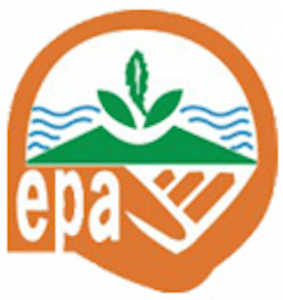Capacity building needed to promote management of chemicals – EPA
 Mr Daniel Amlalo, Executive Director of Environmental Protection Agency, has said that limited capacity to promote training, awareness and education has affected sound management of chemicals and waste in poorer populations.
Mr Daniel Amlalo, Executive Director of Environmental Protection Agency, has said that limited capacity to promote training, awareness and education has affected sound management of chemicals and waste in poorer populations.
This, he explained, was prevalent because emerging economies often cannot afford the necessary controls and surveillance, saying there is the need to build capacity to promote the good use of chemicals and safe use of pesticides for farming and household applications.
The Executive Director said this in Accra at a three-day workshop to launch the second phase of the Global Monitoring Plan (GMP) under the Stockholm Convention in the African Region.
Global efforts to reduce and eliminate Persistent Organic Pollutants (POPs) culminated in the Convention in 2004 which began with 12 compounds, but since May 2009, additional chemicals have been added to the Convention.
Member countries were to evaluate the effectiveness of the Convention after the four year period and to facilitate the evaluation; the conference of parties at its first meeting initiated the establishment of an arrangement called GMP.
The plan was to provide comparable data on the presence of chemicals as well as their regional and global environmental transport.
Mr Amlalo said the country participated in the first GMP, under the auspices of the United Nations Environment Programme (UNEP) and funded by the Global Environment Facility, which supported 15 African countries in data acquisition.
He said GMP 1 project assisted participating countries in the region to develop their capacity for national monitoring programmes and upgraded their analytical skills for the determination of POPs in air, mother’s milk and other matrices.
The programme provided researchers and the national environmental protection agencies on the continent with background information on levels of POPs in the environment, useful for decision-making.
He said the country has over the years been championing the implementation of several chemicals-related Multilateral Environmental Agreements (MEAs) to protect human health and the environment from the adverse impacts of toxic chemical substances.
Mr Amlalo said the country has ratified various MEAs including the Basel Convention on the control of trans-boundary movements of hazardous wastes and their disposal and the Rotterdam Convention on the prior Informed Consent procedure of certain chemicals and pesticides in international trade.
He said the workshop is expected to build on the success of the GMP 1 project and entreated participants to get involved in all discussions since it constitute an important knowledge and skills transfer to generate data which holds the key in detoxifying global environment.
Madam Jacqueline Alvarez, Science and Risk Team Leader of UNEP Chemicals and Waste Branch, said the GMP phase 2 project was to build on the results of phase.
The project 2 would strengthen the countries’ capacity for implementation of the updated POPs GMP, generate high quality data on the presence of transport of POPs in the region and create conditions for sustainability of the monitoring networks.
The workshop would focus on effectiveness, evaluation, outcomes of GMP 1, roles and responsibilities of participating institutions and draft legal agreements between UNEP and the countries.
Source: GNA
